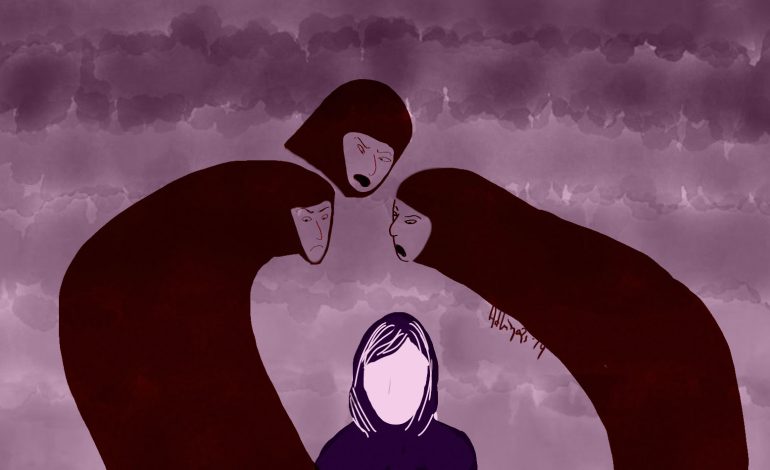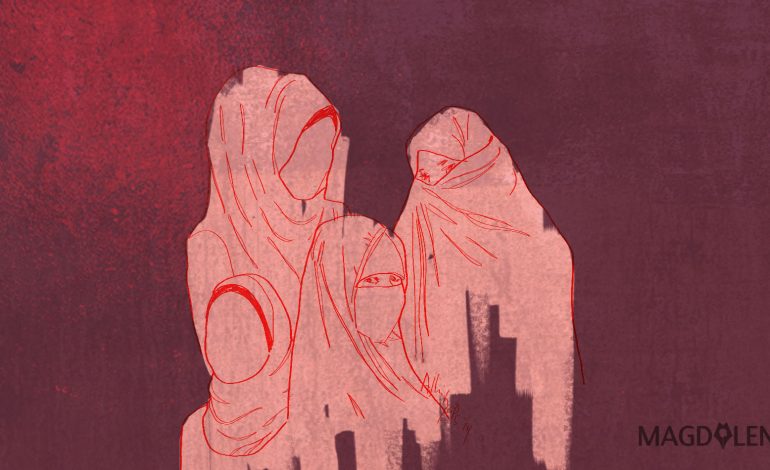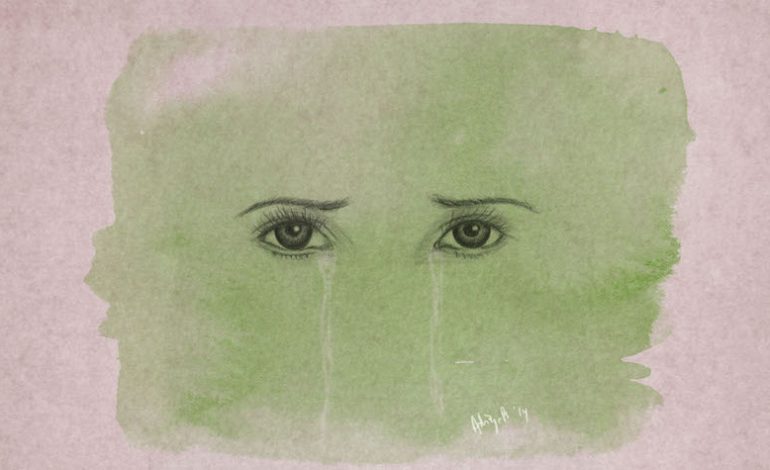Hijabers, Stop Being a Moral Police!

I was just about to drink mineral water, lifting the bottle with my left hand when I felt a tap on my shoulder. A good friend of mine, who just recently decided to wear hijab, glared at me.
“Use your right hand when drinking and eating, otherwise you’ll drink with Satan,” she said. “Ok, I’ll do it next time I drink,” I said. “No, do it now. Use your right hand,” she scolded me.
Not wanting to irk her and because we’re having lunch with a bunch of friends, I placed the water bottle on my right hand.
When she just started wearing hijab, my friend only sometimes reminded me it was time to pray, which was fine. It later became intolerable when she started telling me the correct way of holding a mineral or telling me that staying home reciting Quran is better than wandering in the mall.
My cousin, who has been wearing hijab in the past two years, recently sat me down for a little “heart-to-heart” talks. I knew what she was going to talk about, but I went along out of respect. She gently said that I wasn’t practicing the correct Islamic teaching. And she offered to lead me back to the right track by asking me to recite the Shahada (the declaration of one’s belief in God and the acceptance of Muhammad as God’s prophet) in front of an ulema.
“Islam has many groups but only one will have a place in heaven, and this one group which I’ve been following, has the correct teachings,” she said. “I don’t want you to burn in eternity flame of hell, so you’ll have to start correctly. You have to recite the Shahada again,” she said.
More and more of my female friends and relatives are wearing hijab, which has become a trend in recent years, creating the popular term “Hijabers”. I have nothing against hijab and have much respect to those who wear it, as I’m also a Muslim. But what I don’t appreciate is that by wearing hijab, some of them feel spiritually superior and entitled to become religious police.
Social media has also become a playground in promoting hijab. Nothing wrong with that, but I found some to be unsettling. Another relative once posted a graphic picture on Facebook showing the stages of covering a woman’s body with hijab. A woman in the lowest ladder wore a tank-top and one on the highest ladder had hijab on. Underneath the bar, there were two arrows. The one going up the ladder with the woman in hijab says “loved by God”, while the second arrow going down the ladder says “loved by satan”. (Seeing this making me wonder whether Indonesian women who lived in villages in Java and Bali in 1900s are in hell now because of they were bare-chested then.)
I increasingly come across fellow Muslims who are questioning my religious quality, criticizing the way I pray or the way I dress, than those non-Muslims who try to convert me into their religions. In fact, none of my non-Muslim friends ever talk me into converting my religion.
I personally admit that I’m not a devout Muslim. I don’t recite the Quran often, although I fast in Ramadan. I try not to skip praying times, but I don’t always perform the prayers. While I don’t wear hijab, I always choose dresses that aren’t revealing. What I’m practicing isn’t perfect but I still believe it’s an important part of my life. Praying does help me going through some of the toughest times in my life. This is what is most important for me.
Religion, to me, is a personal matter. It’s how one person choose the most comfortable way of connecting and communicating with the Supreme Being. Each person, no matter what religions or what Islamic sects they choose to follow – the Shias, Sunnis or even the Ahmadis – must feel that they are following the right path. They feel right because they believe in their heart that it’s the right road. And when it comes to beliefs, people can’t force others to accept it.
If we feel that we have followed the right way, it doesn’t give us the right to judge others are wrong. If we want people to follow what we do, the best way is to become a role model instead of nitpicking others’ religious rituals.
Besides, how do you validate that one way is correct and others are not, unless you want to ask God personally? I believe no one wants to do that because that means you have to die first.
About Dini Respati
Dini is a freelance writer who also does volunteer works from time to time at animal shelters.






















